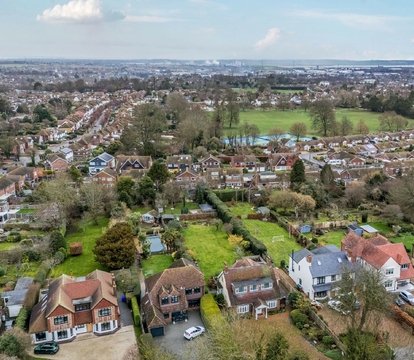How Much Deposit Do You Need for a Buy-to-Let Property?
If you’re considering investing in property, one of the first questions you’ll face is:
“How much deposit do I need for a buy-to-let mortgage?”
The answer depends on several factors, but as a general rule, you’ll need a larger deposit than for a standard residential mortgage. Here’s what you need to know before you take the next step.
What Is a Buy-to-Let Mortgage?
A buy-to-let mortgage is designed for those purchasing a property to rent out to tenants rather than live in themselves.
Because this type of investment carries a higher risk for lenders, the deposit requirements and interest rates are usually higher than for owner-occupied homes.
How Much Deposit Will You Need?
Most lenders ask for a minimum deposit of around 25% of the property’s purchase price.
However, this can vary depending on the lender, your circumstances, and the rental income potential.
Typical deposit ranges are:
20% – the lowest level, available to some experienced landlords.
25% to 40% – the most common range for buy-to-let mortgages.
Example:
For a £300,000 property, you’ll likely need a deposit of around £75,000 (25%).
A larger deposit can unlock better mortgage rates, lower your monthly repayments, and improve your long-term return on investment.
Buying Through a Limited Company
In recent years, many landlords have chosen to purchase their investment properties through a limited company rather than as individuals, often for tax efficiency and portfolio growth.
If you’re buying through a company structure:
Lenders will typically still require a 25–40% deposit.
Mortgage rates for limited company buy-to-lets can be slightly higher than personal mortgages, but interest costs may be offset by corporation tax benefits.
You’ll need to set up an SPV (Special Purpose Vehicle) – a limited company specifically for property investment.
The company directors and shareholders may still need to provide personal guarantees to the lender.
While this route can be advantageous for some investors, it’s not the right fit for everyone.
It’s essential to speak with both a qualified mortgage adviser and a tax professional before deciding on the best structure for your investment.
What Determines Your Deposit Size?
A few key factors will influence how much you need to put down:
Credit profile – A good credit history can help access lower deposit requirements.
Expected rental income – Lenders typically expect rent to cover 125–145% of your mortgage repayments.
Property type – Flats, HMOs, or new-builds may require higher deposits.
Landlord experience – First-time landlords may be asked for a higher deposit than seasoned investors.
Switching From Residential to Buy-to-Let
If you already own a home and are relocating, you might be eligible for consent to let. This is where you apply to your lender for permission to rent out your home for a temporary period whilst still on a residential mortgage. You must get this from your lender before renting out your home.
Quealy & Co Buy-to-let Mortgage Insight:
Buy-to-let lending, whether personal or via a limited company, is a specialist area, and every lender has slightly different criteria.
Speaking with an independent mortgage adviser ensures that you understand your options, compare the best deals, and make informed decisions to achieve your financial goals.
At Quealy & Co Financial Services Ltd, we offer whole-of-market, independent mortgage advice, helping landlords and investors secure the most suitable buy-to-let products for their needs.
Our qualified advisers can help you:
Understand how much you can borrow
Compare deals across personal and limited company buy-to-let mortgages
Get in touch today to discuss your buy-to-let mortgage options and start planning your next investment. Call us: 01795 505761
Email us: mortgages@quealy.co.uk
**Your home may be repossessed if you do not keep up repayments on your mortgage.**
Quealy & Co Financial Services Ltd. is authorised and regulated by the Financial Conduct Authority No. 919693. Most Buy to Let mortgages are not regulated by the Financial Conduct Authority and will not benefit from the same regulatory protection as residential mortgages.
Other Stories
16 February 2026
Next Level Marketing: Showcasing Your Home to the Right Buyers
16 February 2026
Your February 2026 Property Market Update
09 February 2026
Sellers Spring Into Action as Listings Hit Highest Level Since 2018
03 February 2026





